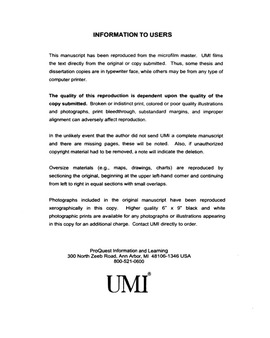| dc.contributor.advisor | Buckley, Michael, | en_US |
| dc.contributor.author | Mobbs, Tommie Allison. | en_US |
| dc.date.accessioned | 2013-08-16T12:18:23Z | |
| dc.date.available | 2013-08-16T12:18:23Z | |
| dc.date.issued | 2001 | en_US |
| dc.identifier.uri | https://hdl.handle.net/11244/367 | |
| dc.description.abstract | The temperamental measures of Effortful Control and Affiliativeness were found to be significantly related to ethical decision making, and explain more variance than the Big Five measures of Conscientiousness and Agreeableness. The situational variable of Moral Intensity had a significant influence on ethical decision-making, whistle blowing, and engaging in extra-role behaviors. The organizational-level variable of Leadership and Corporate Social Performance was significantly related to whistle blowing and extra-role behaviors, but not significantly related to ethical decision-making. Accountability within the organization was significantly related to ethical decision-making and whistle blowing. Accountability was also significantly related to performing extra-role behaviors, although it was in the opposite direction than hypothesized. | en_US |
| dc.description.abstract | The study investigated the relationship between ethical decision-making in organizations and individual personality variables, the organizational level variables of leadership and corporate social responsibility and accountability, and the situational variable of moral intensity. It was hypothesized that individual differences as measured through a temperament questionnaire would be more predictive of ethical decision-making compared to a trait measure of personality. Further, it was hypothesized that individuals within organizations with high levels of accountability and leadership would display a higher level of ethical behavior compared to those individuals in organizations with low accountability and low leadership. It was also hypothesized that situations with high moral intensity would elicit a higher level of ethical decision making in organizations compared to situations with low moral intensity. Finally, it was hypothesized that individual, organizational, and situational variables would also be associated with whistle blowing activities and extra role behaviors within organizations. | en_US |
| dc.description.abstract | Participants in the study were students in an upper-division management class at a large Midwestern university. The participants were asked to complete a temperament and Big Five personality instrument, and indicate how they would behave in eight separate organizational environments. A factor analysis was done on the temperament instrument to further investigate the biologically-based personality construct, and the relationship between temperament and a trait model of personality. An ethical behavior score (EBS) was calculated for each participant. Internal and external whistle blowing were also examined along with the participant's propensity to engage in behaviors that went above and beyond the job description. | en_US |
| dc.format.extent | viii, 169 leaves : | en_US |
| dc.subject | Psychology, Industrial. | en_US |
| dc.subject | Decision making Moral and ethical aspects. | en_US |
| dc.title | An interactionist model on the influences of moral intensity, organizational environment and temperamental characteristics on ethical decision making in organizations. | en_US |
| dc.type | Thesis | en_US |
| dc.thesis.degree | Ph.D. | en_US |
| dc.thesis.degreeDiscipline | Department of Psychology | en_US |
| dc.note | Adviser: Michael Buckley. | en_US |
| dc.note | Source: Dissertation Abstracts International, Volume: 62-09, Section: B, page: 4260. | en_US |
| ou.identifier | (UMI)AAI3025983 | en_US |
| ou.group | College of Arts and Sciences::Department of Psychology | |
